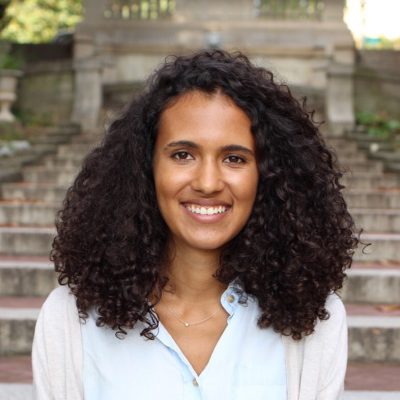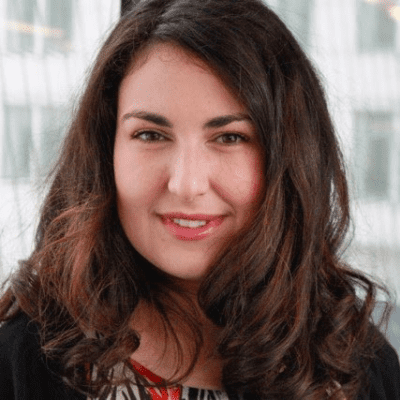Details
Article
While Lisa Ama Schrade was born and raised in Munich, Germany, with part of her family from Kumasi, Ghana, she spent many years studying and working in the United States before eventually returning to Germany for her Masters a few years ago. Issues of migration, transnationality, racism, discrimination, and the struggle for social justice and equality are relevant to her personal life, her activism, and overlap with many of her academic and professional interests. By extension, Lisa’s perspectives emerge out of continuous comparisons between the social and political conditions in Germany, Europe, and those in the U.S., while also including the perspective of African diasporas. This perspective is formative and crucial with regard to her interest in social justice issues. The concept of intersectionality became important to her in this context. Intersectionality enables her to not only make sense of her own experience as a Black German woman, but also, “to think through and compare the different dimensions of social inclusions and exclusions that work in the respective political cultures.” It is against this background, that human rights and the rights of minorities and marginalized communities are of particular concern to Lisa, and she is committed to working towards sustainable and systemic change in our society. Intersectionality enables her to not only make sense of her own experience as a Black German woman, but also, “to think through and compare the different dimensions of social inclusions and exclusions that work in the respective political cultures.”
When she was 16 years old, Lisa’s family emigrated to the United States, where she finished high school and ultimately studied, worked, and lived for over ten years. She attended Hampshire College in Amherst, Massachusetts, with a brief stint at Sciences Po. Paris, where she became interested in French society and its treatment of race. She decided to delve into this topic, resulting in her thesis, titled “Race in Colorblind France: Principles of Inclusion and Practices of Exclusion.” After obtaining her bachelor’s degree, she moved to Washington D.C. to work on progressive public policy issues. During her time as a policy associate for the National Association of Criminal Defense Lawyers (NACDL), she worked at the center of national advocacy and education efforts to reform the U.S. criminal justice system, trying to tackle institutionalized problems such as the lack of access to legal aid and the racial biases within the system. As part of her work, she recruited pro bono attorneys across the U.S., collaborated with the National Lawyers Guild to organize training on the rudiments of representing political protesters. She also helped facilitate pro bono representation before and after protests. Learning more about criminal justice policies and their consequences for vulnerable populations only solidified Lisa’s commitment to work towards ensuring access to justice for marginalized communities.
After three years with the NACDL, Lisa returned to Germany to obtain her Master’s in International Affairs and Public Policy from the Hertie School of Governance in Berlin, which allowed her to expand her knowledge in a European policy context. She also used this time to combine her love for the arts with her interest in politics. Her master’s thesis, “Berlin’s Colonial Legacy and Cultural Restitution – Developing a City-Wide Approach” led her to work with artists and activists in the city. She comes from a family of artists and is interested in connecting social justice and politics with art and artistic mediums, a perspective that she would like to share with the HIA community. Lisa hopes to continue the tradition of critically engaging with the historical, political, and economic systems that underlie social inequalities in society, as well as creating community and bringing people together to develop visions of systemic and sustainable change.
As a 2020 Fellow of the HIA Berlin Fellowship herself, Lisa is looking forward to working with the entire HIA community to bring the profound experience of HIA to future Fellows. As the Program Director for Humanity in Action Germany, Lisa hopes to continue the tradition of critically engaging with the historical, political, and economic systems that underlie social inequalities in society, as well as creating community and bringing people together to develop visions of systemic and sustainable change. Additionally, Lisa is looking forward to engaging with questions of social justice and equity from an interdisciplinary perspective. As a part of her master’s thesis, she explored questions regarding restitution and the role of museums and cultural institutions, highlighting that the confrontation of Germany’s colonial past in this context has only recently become part of a broader national discourse. Lisa looks forward to engaging with these types of debates and building bridges between historical events and current social discourses and structures as part of her role at HIA. She is excited to be able to continue to support political education and engagement while learning from the HIA team. She believes that, especially in our current political climate, the importance of HIA’s bottom-up approach, and its goal of fostering awareness, empathy, and responsibility for social justice cannot be overstated.





